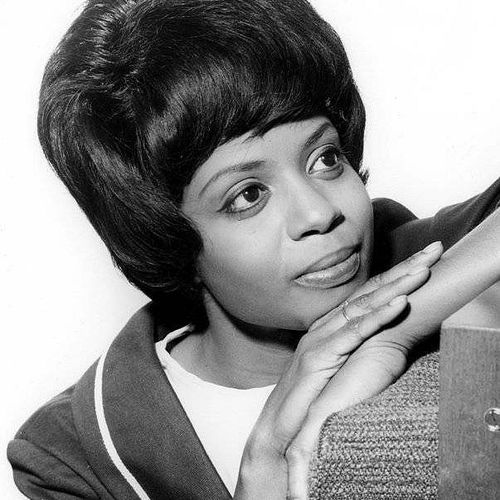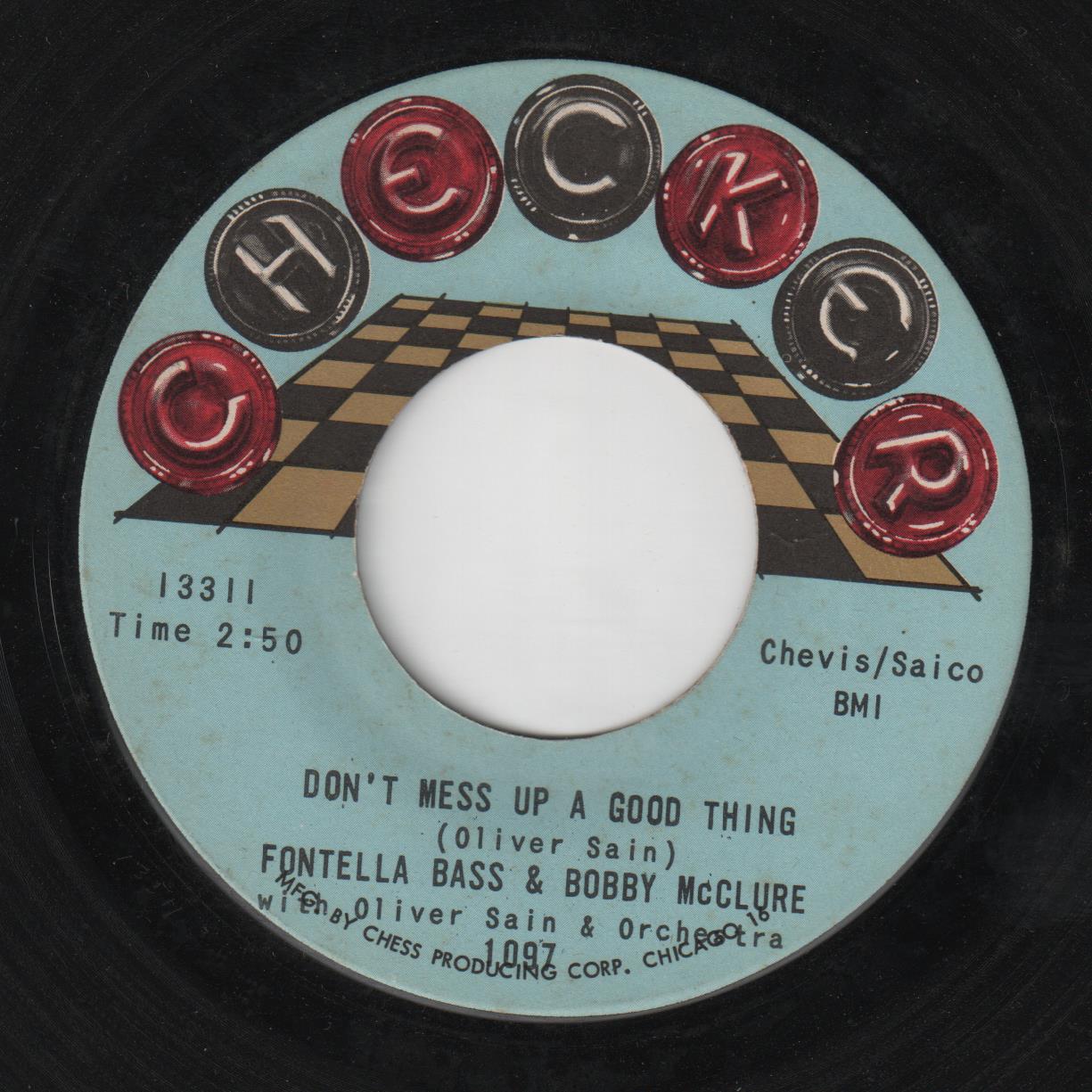FONTELLA BASS

Fontella Bass recorded in Chicago and is best remembered for the 1965 smash, "Rescue Me."
She was born in St. Louis, Missouri, on July 3, 1940. She was the daughter of gospel singer Martha Bass, who belonged to the Clara Ward Singers. At age five, she provided the piano accompaniment when her grandmother sang at funeral services. She joined her church choir at age six. And by the time she was nine, Bass was accompanying her mother on tours of the American South and Southwest.
As a teenager, Bass became more interested in secular music. She took to singing Rhythm & Blues songs at local contests and fairs. At seventeen, she began her professional career singing at the Showboat Club near Chain Rocks, Missouri. In 1961, she auditioned for the Leon Claxton carnival show. Bass was hired for the two weeks the carnival was in town, playing piano and singing in the chorus. Bass wanted to tour with Claxton, but her mother “literally dragged me off the train.”
During her brief time with Claxton, Bass was heard by blues singer Little Milton. His bandleader, Oliver Sain, hired her to back Milton on piano for both live shows and recording sessions. When Milton failed to show up for a gig, Sain had Bass sing in his place. She soon became a featured vocalist in the show. When Sain and Milton went their separate ways, Bass went with Sain, who also recruited singer Bobby McClure.
With the support of Bob Lyons, who managed the St. Louis radio station KATZ, Bass released her earliest singles on the Bobbin label in 1962. She also recorded for Ike Turner’s labels, Prann and Sonja. Turner produced those sessions for Bass and included his wife, Tina Turner, on Bass’ 1964 release, “Poor Little Fool.” These early singles were not commercially successful. It was also during this time that Bass married jazz trumpeter Lester Bowie.
In 1964, she had a dispute with Sain that led to her quitting the show and moving to Chicago. Bass auditioned for Chess Records and was signed to its Checker subsidiary. Her first singles there were duets with Bobby McClure, who Chess had also signed. Their debut, “Don’t Mess Up a Good Thing,” was released in January 1965. It went top five on the Billboard R&B chart and top forty on the pop side. Ironically, Chess had commissioned Oliver Sain to produce the Bass & McClure session.
After one more single with McClure and a brief tour, Bass returned to the Chess studios to record “Rescue Me.” Backing musicians included bass player Louis Satterfield, saxophonist Gene Barge, and drummer Maurice White (later of Earth, Wind & Fire). Among the back-up singers was a young Minnie Riperton. Released in the fall of 1965, “Rescue Me” spent a month at #1 R&B and hit #4 pop. It also became a #11 hit in the UK. “Rescue Me” sold over one million copies and received a gold disc from the Recording Industry Association of America. It also received a Grammy nomination. Also worth mentioning is “The Soul of a Man,” the gospel-dernched blues ballad on the B-side of “Rescue Me.” A reviewer at Billboard even singled it out as the hit side!
There was some controversy surrounding the writer’s credit on “Rescue Me.” Producer Billy Davis, along with co-writers Carl Smith and Raynard Miner, had assured Bass that her contribution to the song’s lyrics would be acknowledged. However, when the record came out, Bass did not get a writer’s credit. When she complained to Davis (then her manager) about it, he assured Bass that her name would be on the song’s legal documents; but that never happened either. As a result, Bass became disillusioned with Chess and quit the label in 1967. There would be many years of litigation before Bass finally received a co-writer’s credit and collected her back royalties.
In 1969, she and husband Lester Bowie moved to Paris, where they recorded two albums with the Art Ensemble of Chicago. By 1972, Bass had retired from music to focus on raising her and Bowie’s four children. She did, however, appear on two of her husband’s LPs: The Great Pretender (1981) and All the Magic (1982). In 1990, Bass recorded a gospel album, along with her mother and brother David Peaston. She also toured the U.S. West Coast that fall as part of a show called Juke Joints and Jubilee. It featured both gospel and blues acts.
Also in 1990, “Rescue Me” was used in a TV ad for American Express. Bass sued the company and its advertising agency, which resulted in a 1993 settlement in the amount of $50,000 plus punitive damages. Bass went on to appear in the PBS special, Soul Celebration. And in May 2000, she received a star on the St. Louis Walk of Fame.
In her later years, Fontella Bass struggled with deteriorating health. She survived breast cancer but then had a series of strokes. She also had a leg amputated and died on December 26, 2012, of complications from a heart attack. Bass was seventy-two.
Rock critic Dave Marsh included “Rescue Me” and “Don’t Mess Up a Good Thing” in his 1989 book, The Heart of Rock and Soul: The 1001 Greatest Singles Ever Made.
Charted singles:
“Don’t Mess Up a Good Thing” (duet with Bobby McClure, 1965) R&B #5, Pop #33
“You’ll Miss Me (When I’m Gone)” (duet with Bobby McClure, 1965) R&B #27, Pop #91
“Rescue Me” (1965) R&B #1 (4 weeks), Pop #4
“Recovery” (1966) R&B #13, Pop #37
“I Can’t Rest” (1966) R&B #31
“I Surrender” (1966) R&B #33, Pop #78
“You’ll Never Ever Know” (1966) R&B #34
“Safe and Sound” (1966) Pop #100

